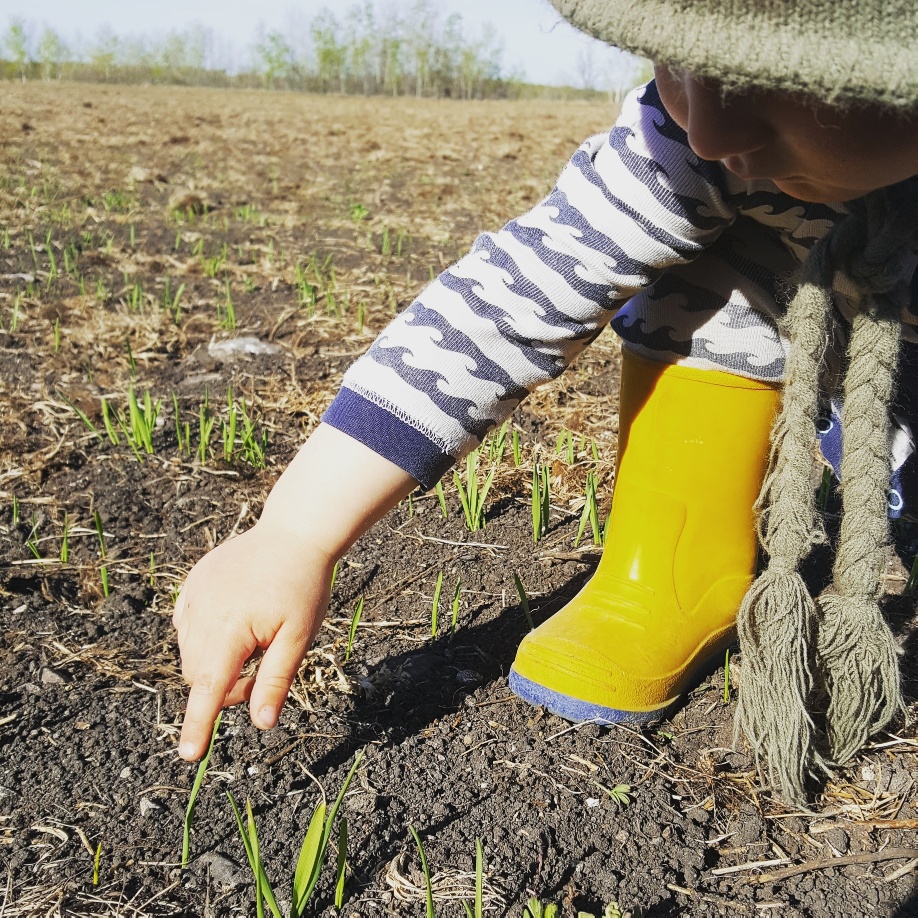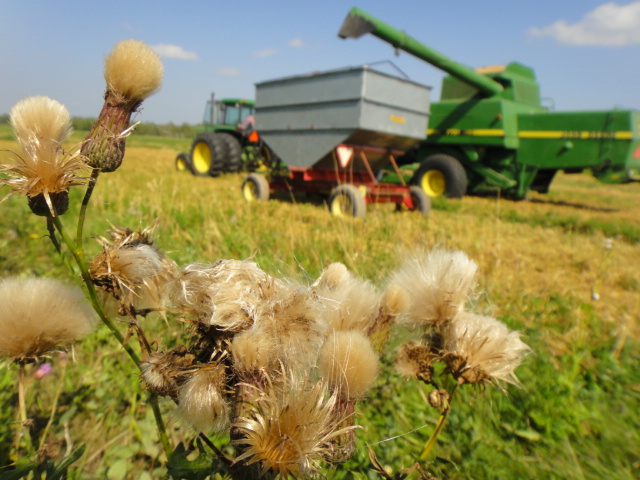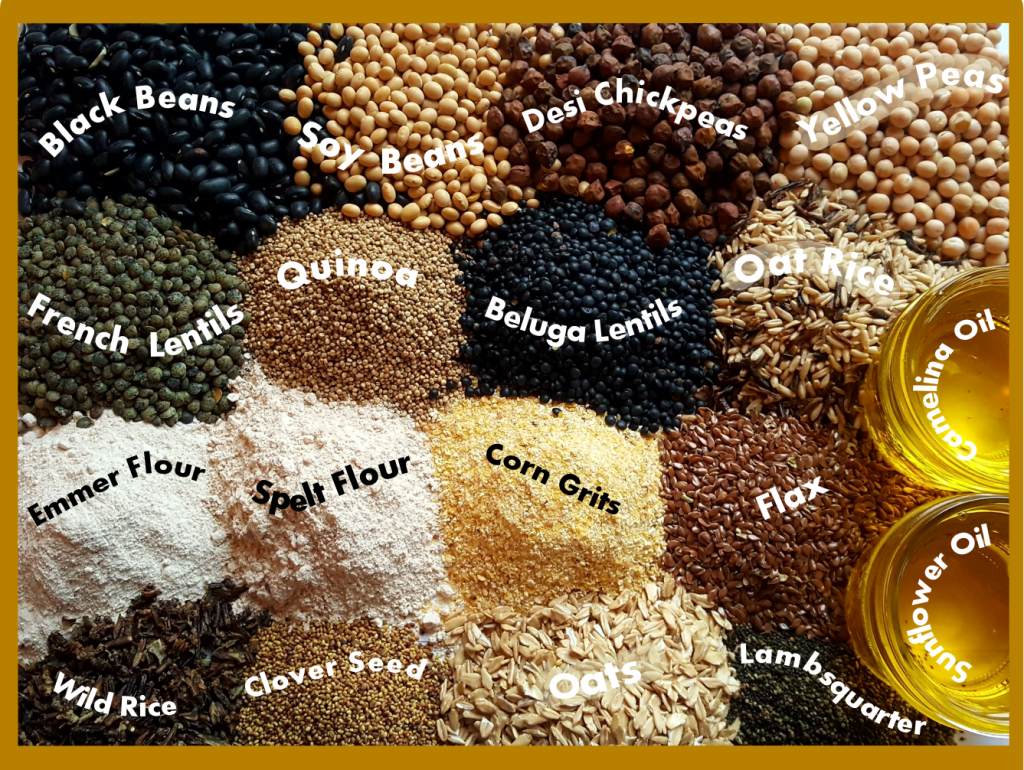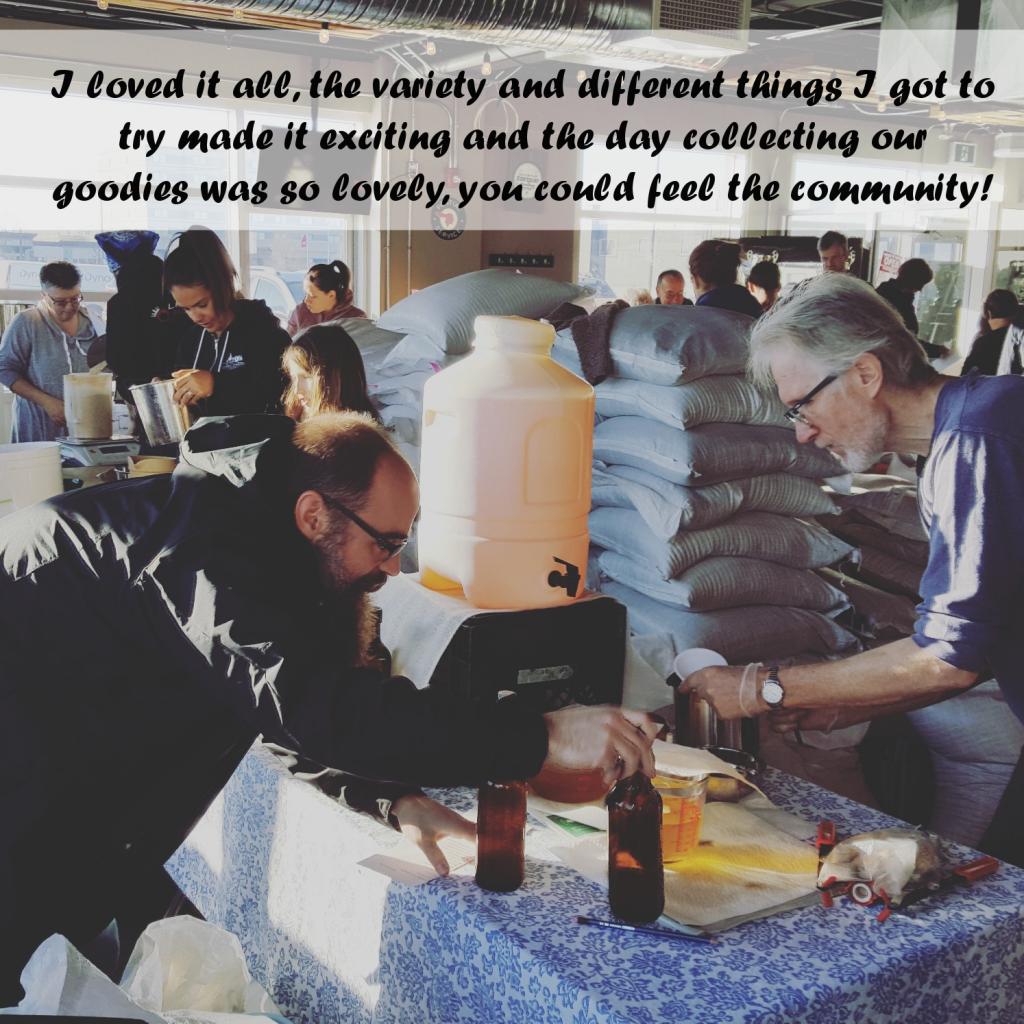We’re all in this together. Trying to eat healthy food that is good for our bodies, and also good for this planet that we share.
But even as an organic farmer, surrounded by incredible farmer friends and amazing food, I know what it’s like to run into a big box store and come out with a cart-load of boxed, packaged, shipped-around-the-world and over-plastic-ized food that will fill my family’s stomachs, but at a cost to our land and communities. But I know that when I make the effort, and reach out to the neighbour with an abundance of fruit or fresh eggs, the food I receive is not only better for our bodies, but is also a step towards a more sustainable and happier existence.

But it’s not just consumers who are left out, and our large scale agricultural systems don’t always “work” for farmers either. This is especially true for those trying to make a go of it on smaller areas of land, those who are experimenting with rotations that build up soil quality and nutrients without chemical applications, or who are trying out new crops. Farmers usually need a full semi-truck load (around 40,000 pounds!!!) before a grain buyer will bother looking at it, so if a farmer harvests a smaller quantity there’s often nowhere for it to go. Sometimes this means that perfectly good food crops are fed to livestock or left in the corner of a grain bin until the following year, and usually results in no income for the farmer who grew it. Stunningly, this seemingly insignificant gap between farms and processing equates to nearly 10% of all the food waste worldwide, or 38kg of food annually per person!
Large scale processing also means that food grown in a particular area doesn’t stay there. In order to get milled or processed the crops need to travel half-way around the country and then back again, packaged, repackaged, sold to brokers, distributors, and retailers before it makes its way to your dinner plate. The uncertainty of marketing small batches also acts as a collective push towards farmers growing the same few “safe” crops year after year after year. This decreases diversity in our agricultural spaces, limits local food security, and leads to a less varied diet, where the same few crops make up the majority of calories consumed, just presented in different forms.

We wanted to help out in some way, and three years ago we took a leap and decided to give it a whirl. We used our seed cleaning and milling facility set up for our own naked oats to round up bits and pieces of “leftover” crops. Food that is wonderfully nutritious, organically grown, and lovingly tended, but because of logistics, couldn’t be sold into the conventional market. These were gathered up from around the province and cleaned (this is the process of getting rid of the weeds, straw, stones, and miscellany that comes along with harvested crops), and minimally packaged (we love re-purposing ice cream pails and mason jars to create a zero-waste food supply!).
It felt like magic. Food that was previously homeless and unvalued became the most valued addition to our pantries, and as we shared this food with the community around us, we saw it transformed in soup pots and family dinners across the province. Some people get that feeling of awe looking up at the night sky. For me, it’s a french green lentil simmered into a thick stew.

So we created our Winter Grain CSA as a way of being able to share this abundance of food with Manitobans, in a way that can adapt and change each season, and that reflects the realities of growing food in our province. Over the past few years we have learned so much about our food system. There is much more food out there than we could ever use. We might get a batch of 3,000lbs of blackbeans, clean it and get it to homes, and the next week get a call from another farmer with an additional 10,000 lbs waiting. It seems there is no end to the gaps in this food system we are in, but we will continue to do everything we can to fill those gaps!
In addition, we are extremely honoured to be able to work collaboratively with other organic farmers (including Tamarack Farms, Deruyck’s Top of the Hill Farm, Freefield Organics, and Ploughshares Community Farm) who are growing amazing food and also doing the on-farm processing to clean and mill those crops into incredible food products that are also included in the grain bundles.
We’ve called our concept a CSA, or “Community Supported Agriculture”. You’re probably more familiar with this concept in the summer, where you buy a “share” of a small scale market garden, and then receive a weekly package of veg.
By purchasing a grain CSA share, you are making it possible for small-scale organic farmers around the province to take risks, to try new crops, new rotations, incubate value-added ventures, and know that there is a local market for what they are growing. We will make sure that you receive fair value or better for your purchase, but we can’t commit to exact quantities until the crop round-up is complete. If there’s only four hundred pounds of hemp seed available and 200 people sign up, you’ll all get 2 lbs. If 400 people sign up everyone will get 1 lb of hemp seeds and we’ll add another product to fatten up the bundle. This is essential to the meaning of Community Supported Agriculture: eating what is locally abundant and available, reducing food waste and system inefficiencies, and connecting local farmers to the people around them.

A few thoughts from previous year’s Grain CSA participants:
No Title
We have participated in the Winter Grain CSA for the past 3 years, and each year has been even more lovely than the last! The quality of the foods can’t be beat, and it’s been a really lovely experience to learn what grows here, and to get a little creative with cooking for our family. I’m grateful to these farmers who are part of the CSA who work hard to nourish the land as well as our Manitoba community, and love supporting this amazing CSA! Treat yourself, and join for the next season – your belly, our soil, and our amazing CSA farming community will thank you!!
No Title
Receiving my Adagio Acres winter grain CSA was the best thing that could have happened to me in January! Like a belated Yuletide gift of treasures from the earth, it made cooking and eating local food a continuing act of gratitude and joy. Could hardly wait to sign up again, and I’m super excited about some of the new items in this year’s bundle.
No Title
Àwsome somebody local manitoba. For being the grain belt of noth america some grains extremely difficult to find organic,
I also like the style of farming.
No Title
I ordered several products from Adagio Acres for the first time. I have been enjoying using the flours (emmer and buckwheat) in baking recipes. I have also been having fun incorporating the French and Beluga lentils into various vegan, vegetarian as well as meat recipes. The only downside for me as a former elementary school teacher is that I can’t use the Beluga lentils without constantly singing Raffi’s song Baby Belug.
No Title
It’s amazing!!!! So much gratitude to Amy and co. for the efforts in realizing this incredible celebration of local food!
Links to our previous newsletters:
Harvest Report – September 2019
Sunshine & Gratitude – March 2020
Manitoba Roadtrip – November 2020
Summer 2022. Thoughts on Sustainable Production…a sh…y subject…
If you signed up for our newsletter but haven’t been getting any updates, please check your spam folder, and add our email address to your safe contact list 🙂